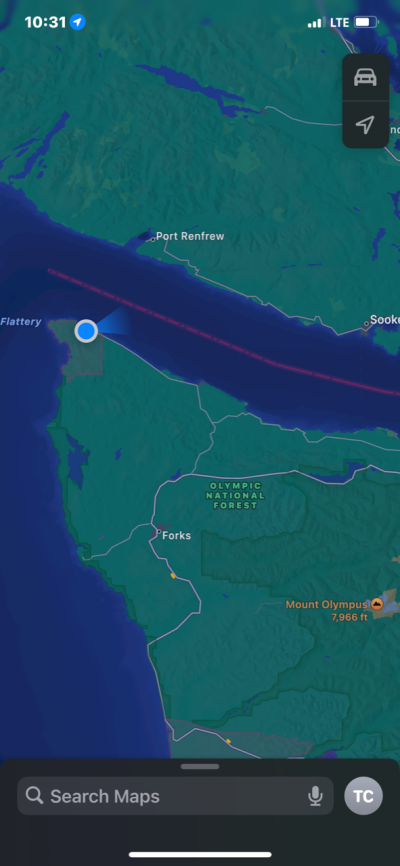Verizon’s recent push to publicize its Test Force comes years after its famous “Can you hear me now?” campaign. That media blitz featured the actor Paul Marcarelli as the quintessential test man braving all kinds of environments to get a good read on the network.

Verizon wants everyone to know that its current team of wireless engineers and technicians is no less committed. Case in point: One Washington state engineer traipsed to the northernmost shores of the state to identify and eliminate the source of interference for Verizon customers. The carrier didn’t say how many customers were affected, but the engineer ventured pretty far off the grid to track it down.
According to a Verizon spokesperson, when Verizon sees interference, it usually shows up as an increase in dropped calls, lower call quality, slower data speeds or data packet drops – or faster batteries draining on cell phones because the phones have to work so much harder to get past the interfering signals. Verizon received several complaints reflecting those types of performance issues in this area of Washington.
Tom O’Keefe, who is based out of Tacoma, Washington, initially saw the performance changes through an analysis of cell site performance data; there’s just one site serving this particular coastal area of Neah Bay. After identifying the general direction from the cell site data, O’Keefe hit the road and used a spectrum analyzer to isolate the interfering signal – down to the marina where he narrowed the source to a specific tugboat.
The boat owner didn’t immediately respond to O’Keefe’s outreach, so he contacted the harbormaster who was able to connect with the boat owner. “The boat owner was very accommodating in the process of clearing the interference, which was coming from an older model commercial repeater,” the Verizon spokesperson explained.
With that, the source of unauthorized signals was shut down. O’Keefe apparently is part of a specialized group within Verizon’s Test Force, called RF Hunters, who search high and low to find stray RF signals.
Verizon makes a point of saying that it’s no longer about “Can you hear me now?” but it’s about streaming, purchasing, uploading, downloading and all the things consumers want to do on their smartphones in the 4G/5G era. Apparently, ferreting out interference sometimes boils down to having a good RF signal detector and plain old tenacity.